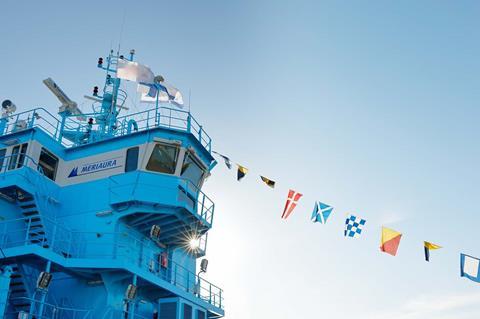Finnish shipping group Meriaura said that it managed to reduce its ships’ emissions by 11.2 percent during 2022 compared to the previous year.

Emissions per tonne of transported cargo per nautical mile (tonne/mile) decreased by 7.8 percent for the bulk fleet and by 20.6 percent for its deck cargo ships. Success in reducing emissions is a sum of many small things together, the most important of which are the minimisation of ballast trips, the maximisation of utilisation rate of the ship’s cargo capacity, and efficiency in port operations.
During 2021, the company developed software for monitoring CO2 emissions across its entire fleet. “Data for the entire fleet has now been collected for two whole years, and we can say with great satisfaction that we have significantly exceeded our annual emission reduction goal of 4 percent for 2022,” said Beppe Rosin, ceo of Meriaura. “What makes me very proud, is that at the same time, Meriaura was able to grow and make a very good financial result, which emphasises the importance of the achievement, as emissions usually increase in times of high market activity.”
The marked improvement in the emissions decrease for its deck and special cargo vessels, according to Meriaura, is partly explained by the fact that in 2021 the result was worsened by a long-time charter period, that also made it difficult to plan the spot charter.
In 2022, high fuel prices encouraged fuel-optimised sailing speeds. It also introduced what it called a ‘virtual arrival’ – a vessel’s arrival time being adapted to the readiness of the port to start cargo operations instead of rushing to wait.
Furthermore, the docking of both deck cargo ships in early 2022 also helped to lower the fuel consumption, while a sound coating of the hull reduced fuel consumption further. The chartering profile has also changed from before: in 2022, deck cargo ships made more long-distance transports, for example to Spain, which is not part of Meriaura’s everyday traffic. In this case, the share of ballast trips decreases in relation to carrying cargo, it said.
“Achieving the emission reduction targets, i.e. the continuous reduction of emissions also in the coming years, requires not only further improvement in operational efficiency, but also an increase in the use of renewable fuels. We have increased the use of our inhouse waste-based biofuel during the beginning of 2023,” Rosin said.
















